‘That’s a typical example of a wrong good idea’ fellow skipper Adrien said. This was when we talked about biofuels.

Then we discussed biomass and bio-industries. All of them ideas that seem good at first, but work out wrong – at some stage.

Let us focus on wrong good idea number one: biofuel.
Biofuels, like peanutoil, were the first fuels we ever used. But fossil fuels replaced them because they were cheaper and gave more energy. So, at the time that seemed like a good idea. However, the production, the uneven distribution of the profits and, of course, the CO2, are serious disadvantages. Now, we could decide to simply use less fuel, less energy. But, we appear to be unable to do so. That’s why we started to like biofuel. It sounds cool, it sounds natural. You might eve feel like you help the environment. But please check these cartoons to see the other side, especially for the first-generation biofuels.
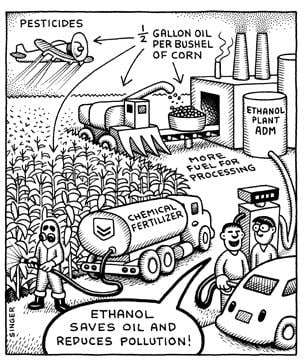
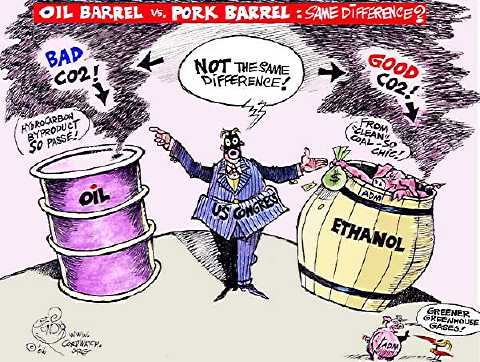
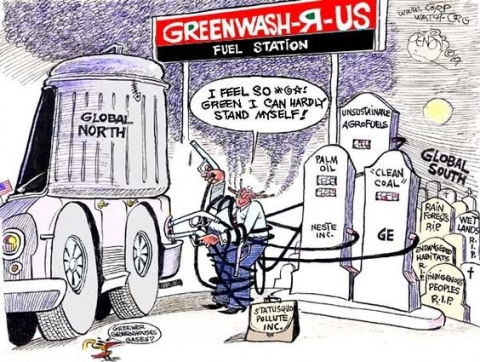
For us, it is sometimes hard to make wise choices. We hope we can rely on our governments to guide us. They also seem to struggle with the transition we are in. In the EU, member States must meet national targets for renewable energy. Countries have to calculate carbon dioxide (CO2), but also methane (CH4) and nitrous oxide (N2O). These are both stronger greenhouse gases than CO2. Biofuels must deliver greenhouse gas savings of at least 35% compared to fossil fuels. It is a start.
Some of the disadvantages related to the first-generation biofuels might be solved by second-generation biofuels. At least the source for these fuels is waste, not food.
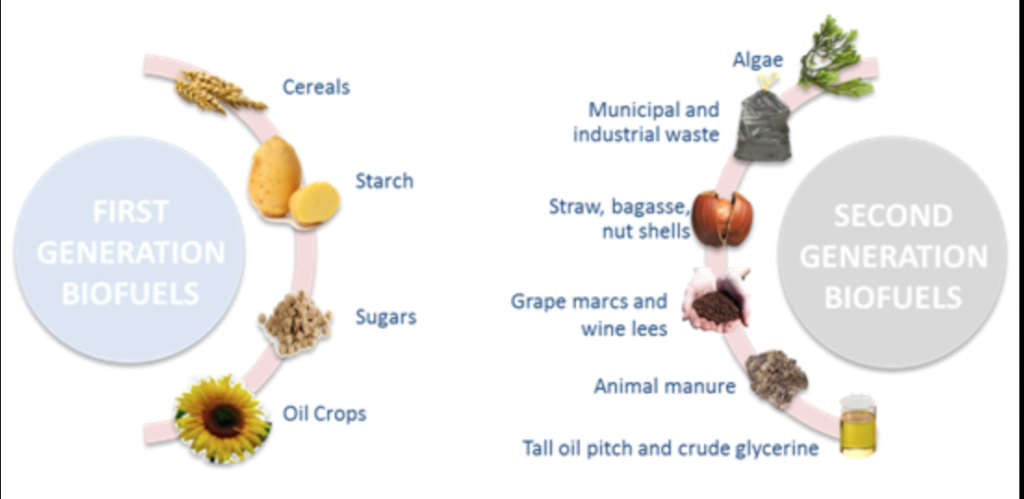
If you would count the algae as ‘third-generation’, by now we are already near the fourth generation biofuels. This fourth generation has been studied for over 20 years now.
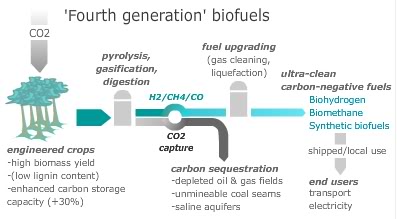
Fourth generation biofuels: carbon-capturing machines and carbon negative fuels (source)
It looks good, but there might be risks for health and the environment. Also, the production costs are high. It would probably need genetic modification and large-scale farming of micro-algae. So, we are not sure if this is, on the whole, a good idea. The same goes for capturing CO2 and turning it into fuel.
If you want to switch to biofuel yourself, you might want to look at the possible disadvantages for the engine first.
Some believe that a technological fix such as biofuels can solve the climate problem and also make profits. Some think the real solution to global warming lies in consuming less. We think it has to be a combination of both, avoiding the ‘wrong good ideas’.
Sources:
https://corpwatch.org/article/climate-change-debate-fuels-greenwash-boom
https://en.wikipedia.org/wiki/Low-carbon_fuel_standard
https://en.wikipedia.org/wiki/Second-generation_biofuels
http://refuelingthefuture.yolasite.com/fourth-generation-biofuels.php
https://global.mongabay.com/news/bioenergy/2007/10/quick-look-at-fourth-generation.html

